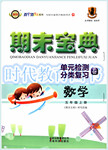题目内容
D
Every August on the island of Heimaey, young people often take a walk along the street throughout the night. Why their parents allow them to stay out ? The children of Heimaey are going to save young puffins ---- small black-and-white seabirds.
The cliffs(悬崖)above the town are home to a large group of puffins . The birds dig holes all around the cliffs . These holes are their homes. The young stay in the holes for about seven weeks. Then they begin to leave . Some move slowly on their undeveloped wings and feet down to the sea around Heimaey. There they swim, which they can do naturally , and learn to dive for fish . Others, however, may lose their way at night and find themselves in the town instead. On the ground, the young birds are in trouble. Because their wings are fully developed, they cannot take off quickly to sea and safety. The birds then become a good meal for cats and other animals .
For many years, islanders have help the young puffins. At night in late August, children carrying thick paper boxes and lights hurry out to catch puffins . They spend most of the night running after the birds. They put the birds they've caught into boxes and take good care of them .
The next morning the children take the puffins to the sea and set them free. The bird will live at sea until they are at least two years old. Then they will return to the cliffs to build homes of their own.
The children of Heimaey look forward to August !
16.Every August the children of Heimaey are allowed to stay out all night.
A.to catch puffins and take them home B.to save puffins from danger
C.to drive puffins away D.to run after puffins for pleasure
17.The young puffins that lose their way are in the danger of ______.
A.being killed by hunters B.knowing nothing about the sea
C.being eaten by animals D.having no fish to eat
18.The children put the seabirds into boxes and ______.
A.look after them carefully for several days, then set them free
B.set them free when they grow bigger and can take off to sea and safety
C.carry them to the sea right away to set them free
D.they don' t set them free until the next morning
19.The children look forward to August because ______.
A.they enjoy playing the game of running after seabirds
B.it' s time for them to go out at night to save puffins
C.it' s time for them to catch seabirds
D.they like to stay out at night to catch puffins
20.According to the passage, which of the following is NOT TRUE?
A.Once a year the children are allowed to stay out at night to have a good time .
B.The earlier home for the young puffins is in the cliffs, not in the sand of shores .
C.Young puffins make their way down to the sea when they are about seven weeks old.
D.The young birds that get to the sea will stay there for at least two years before they return to the cliffs .
小题1:B
小题2:C
小题3:D
小题4:B
小题5:A
略

练习册系列答案
 期末宝典单元检测分类复习卷系列答案
期末宝典单元检测分类复习卷系列答案
相关题目
 y both of them, the assistant said, “Well, lovely young men, thirty dollars a dozen, only for you.” Taking the roses, the young man almost jumped into the air and ran out of the shop. It was well worth twenty-five dollars that John paid to see the exciting moment. Then John paid for his dozen of roses and told the assistant to send them to his mother.
y both of them, the assistant said, “Well, lovely young men, thirty dollars a dozen, only for you.” Taking the roses, the young man almost jumped into the air and ran out of the shop. It was well worth twenty-five dollars that John paid to see the exciting moment. Then John paid for his dozen of roses and told the assistant to send them to his mother. ng, the young man carefully put down the roses, “Mum, oh, Mum, why didn't I tell you how much I loved you? God, please help me find my mum and tell her I love her.”
ng, the young man carefully put down the roses, “Mum, oh, Mum, why didn't I tell you how much I loved you? God, please help me find my mum and tell her I love her.” s B. pleasant C. exciting D. dull
s B. pleasant C. exciting D. dull